Have you ever seen a motorcyclist riding past in a fluoro vest with BLOOD emblazoned across the back and wondered what it’s all about?
There is an increasing number of volunteer motorcycle riders around the country who transport medical supplies, samples and, yes, the red stuff for hospitals and other healthcare providers and these volunteers are part of Bloodbikes Australia.
All these riders – men and women riding everything from small-capacity cruisers to big-bore sportsbikes – are part of Bloodbikes Australia, an independent, not-for-profit outfit which provides these services at no charge to help free up more money for the delivery of healthcare. And these volunteers have been particularly busy in recent times, providing additional capacity to deliver coronavirus tests to labs so results can be processed faster.
At present, the organisation’s delivery ratio is about 80 percent Covid-related – tests, consumables and so on – 10 percent clinical trials, five percent biopsies, three percent in-home medical deliveries and two percent whole blood.
“We have seen rises and falls in workload even during the pandemic,” explains Bloodbikes Australia’s Sydney volunteer coordinator Richard Alder. “We are also hoping to expand our range of goods carried for healthcare providers, not just Covid swab tests.”
Alder points out that Bloodbikes Australia riders will transport whatever a healthcare client wishes, “as long as it can fit on our bikes,” he adds.
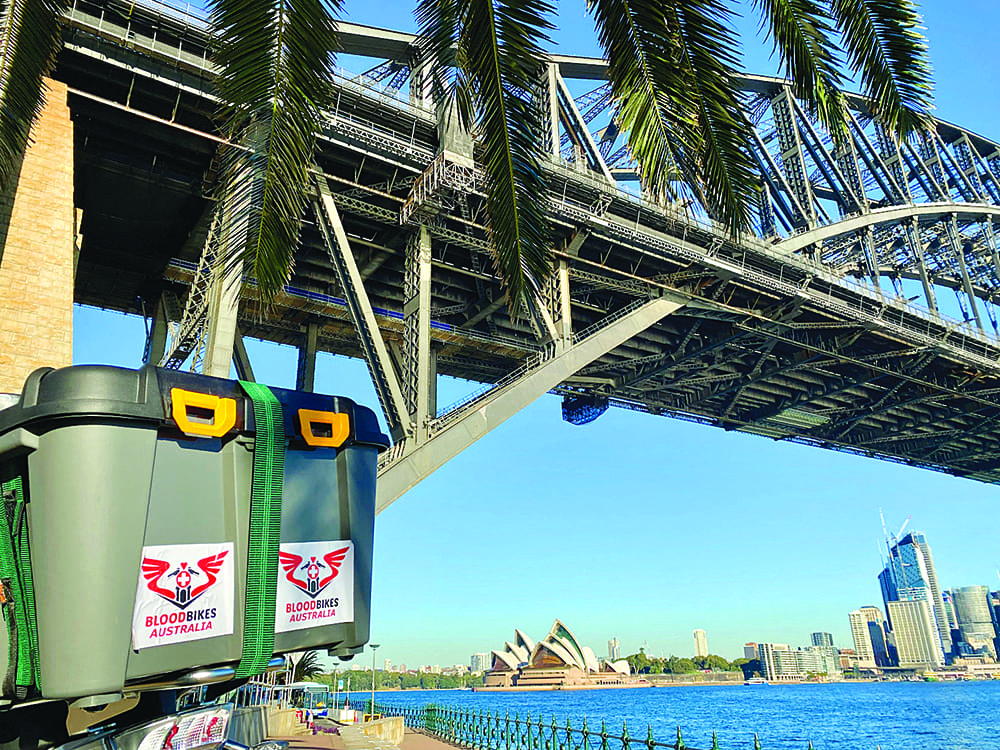
“One of our big advantages is making better progress through traffic than a car or van.”
Now operating in most Australian capital cities, plus regional centres from Moree to the Mornington Peninsula, Bloodbikes Australia was born in Queensland in 2019. Inspired by the well-established Bloodbikes movement in the UK and Ireland, biker Peter Davis decided to kickstart something similar in Australia.
“I had a mate volunteering for Bloodbikes Scotland and I thought what a great idea, a chance to do what I love, riding motorcycles, and doing some good at the same time,” Davis recalls.
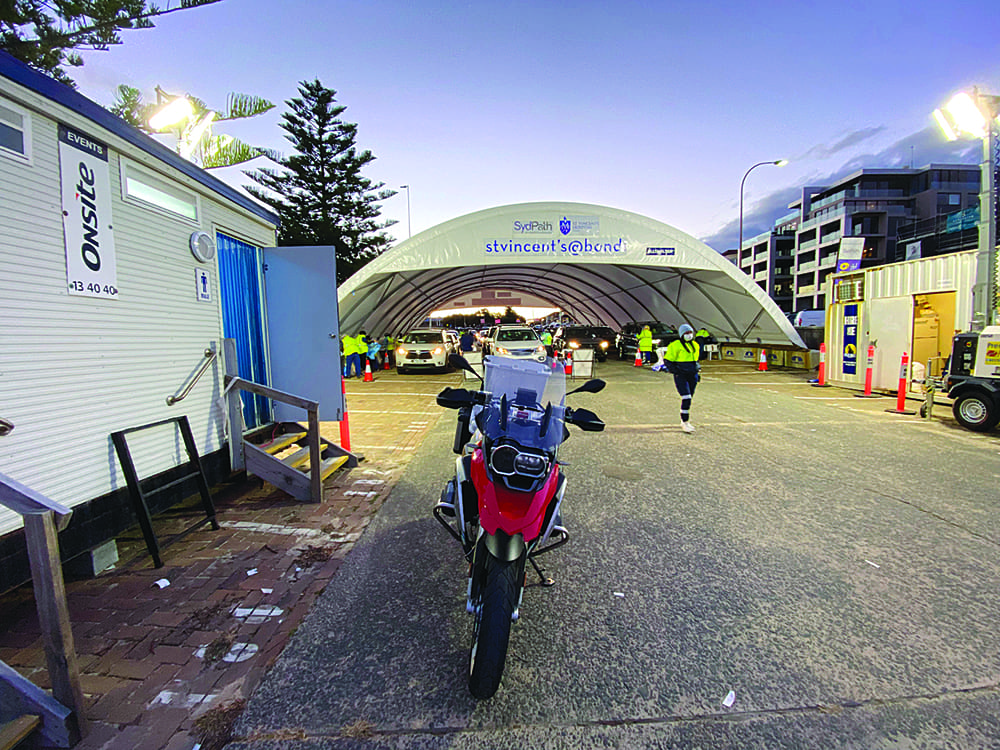
Davis says that the way Bloodbikes Australia works is unique in the world.
“It is the first volunteer franchise where all volunteers agree to the same terms, all volunteers are totally equal, and there is no money involved at all,” he explains.
“There is no fundraising, as every volunteer pays their own expenses. And the real-time cloud-based availability record that enables healthcare providers to see which volunteers are available at that moment is also unique.”
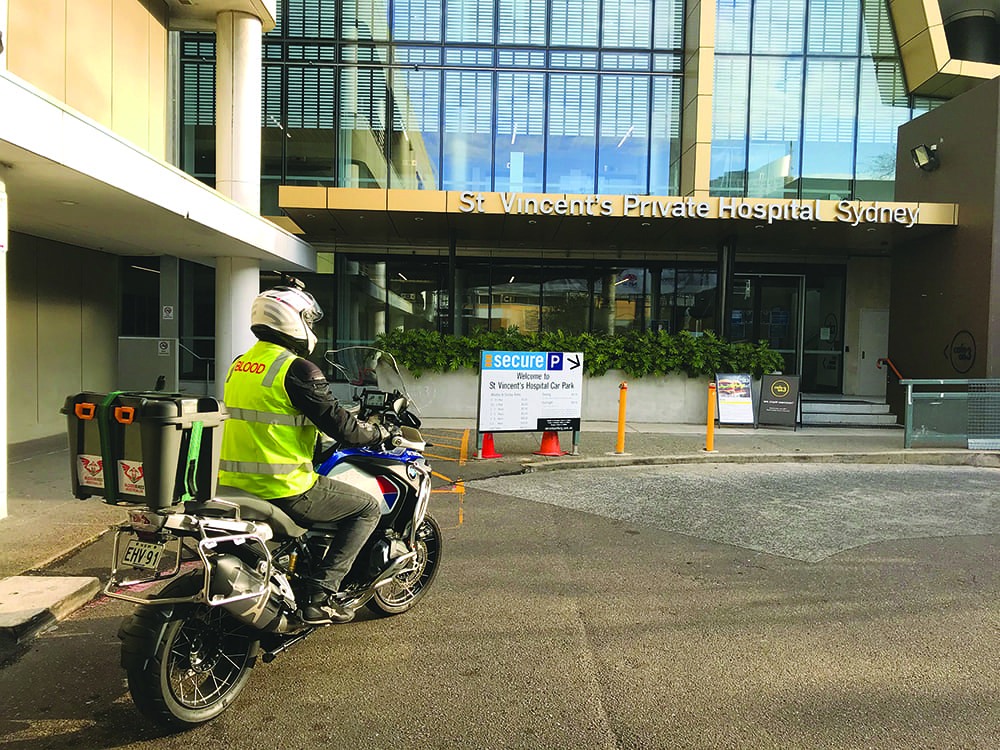
The first-ever Australian deliveries undertaken by Davis and his volunteers involved transporting a variety of pathology, medicines and equipment for Mater Pathology in Brisbane. Next up was Griffith University’s Institute for Glycomics, which is a world-leading researcher into cures for diseases such as melanoma, cervical cancer and Ross River virus.
“Then, after negotiating with the Gold Coast Hospital to tick all the boxes for more than 16 months, we made our first delivery from the hospital to a lady that had an immune-deficiency disease,” Davis recalls.
“She said that our service had saved her sitting in a hospital for four hours and meant she could now stay in the comfort and safety of her infection-free home, while she gave herself the treatments we delivered.

“This made us all feel like a million dollars and is what we are all about.”
Davis also remembers the satisfaction of delivering blood to a cancer patient that needed a late-night emergency transfusion.
Fast forward two years, and as the number of locations and healthcare providers increases, so also does the variety of work that Bloodbikes Australia undertakes.
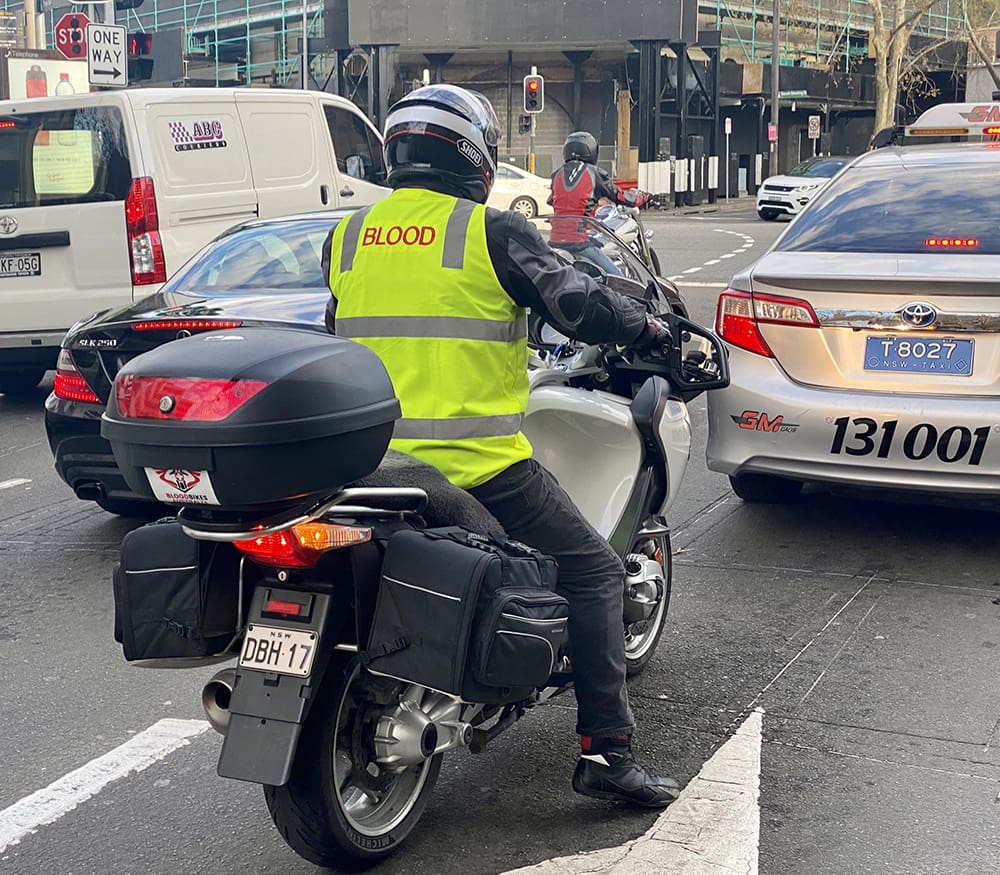
“For example, we are negotiating for the transport of breast milk to premature bubs, as well as delivering the dietary requirements for people with cancers of the stomach,” Davis says.
“Furthermore, Covid and its effects will be with us for some time, and when the world focus lessens, I suspect resources will reduce and hence there could very well be more need for our free volunteer service on Covid-related transport.”
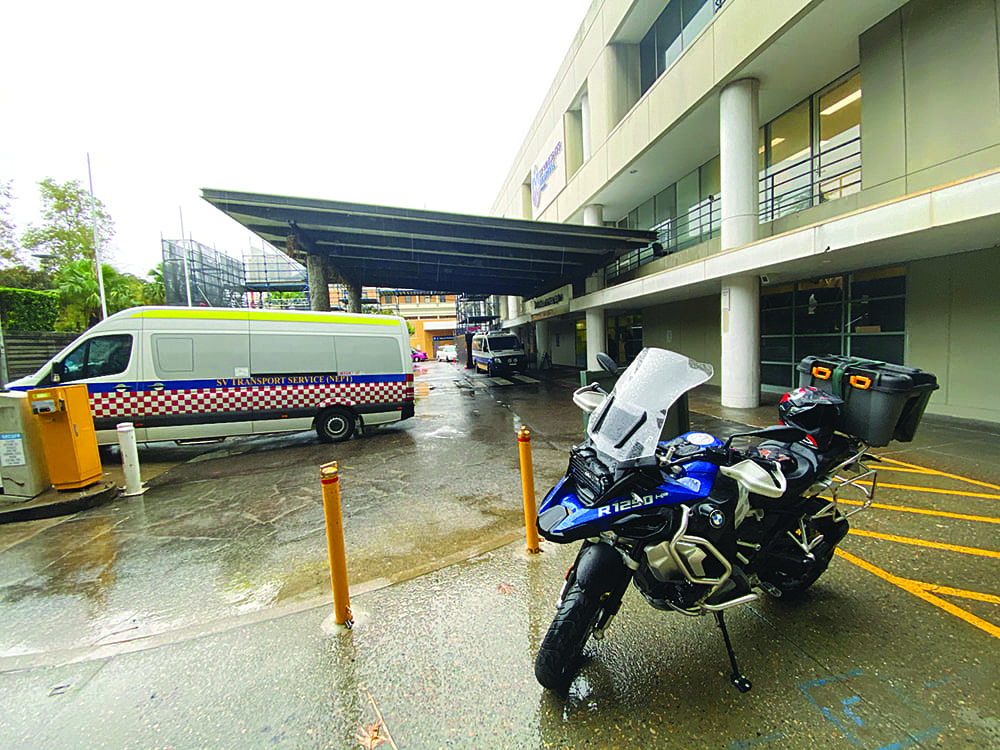
At present, Bloodbikes Australia has more than 170 fully qualified, active volunteers assisting 22 healthcare providers around the country.
Davis says that he would like to have at least 400 active volunteers riding for 50 healthcare providers by the end of 2022, with more coverage in regional Australia.
“While the possibilities are not endless, there is much more room for growth – more healthcare providers, more riders, more services, more partnerships,” he says.
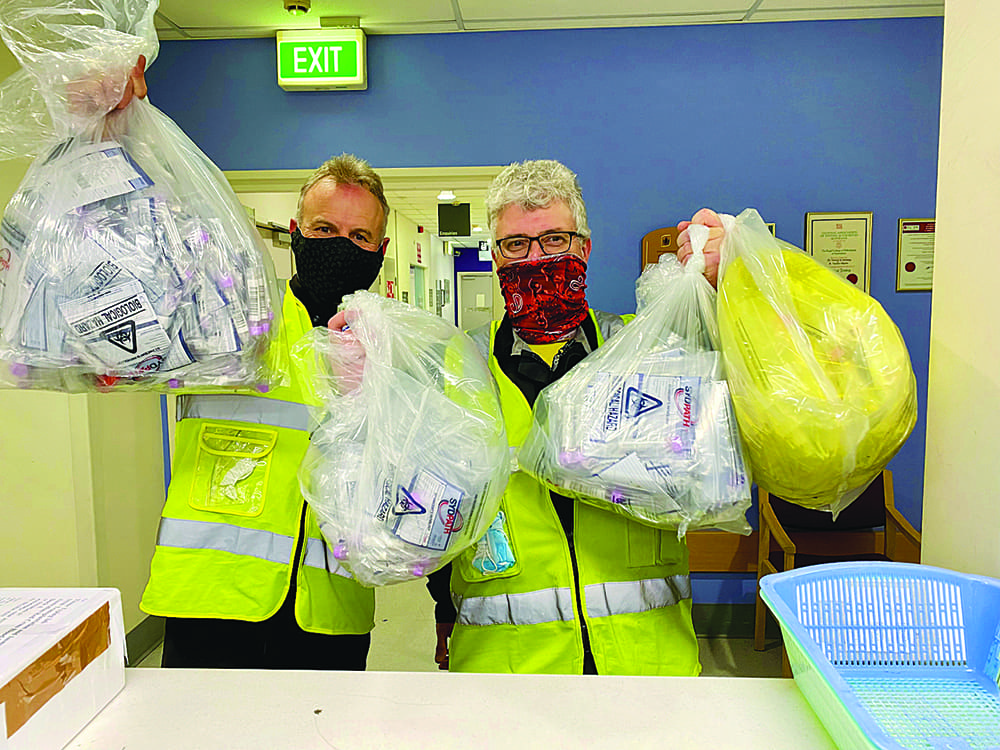
How to get involved
If you think Bloodbikes Australia might be for you, you’ll need to have more than three years riding experience, plus a reliable bike with full rego, comprehensive motorcycle insurance and a good-sized bucket or pannier on the back. You’ll also need to complete an online course in blood transportation. In addition, each new rider is asked to join an experienced volunteer on an induction run.
“This is really a familiarisation run and a ‘putting a face to a name’ exercise,” Alder explains. “It’s an opportunity for the new rider to ask any final questions of the more experienced person and get familiar with the drop-off site.”
For more information, visit www.bloodbikesaustralia.org.au, the Bloodbikes Australia Facebook page or simply drop Peter Davis a line at bloodbikersaus@gmail.com. But, as Davis points out, “Bloodbikes Australia volunteers are not ‘wannabe’ police or ambulance, we are not emergency vehicles, and we abide by all road rules.”
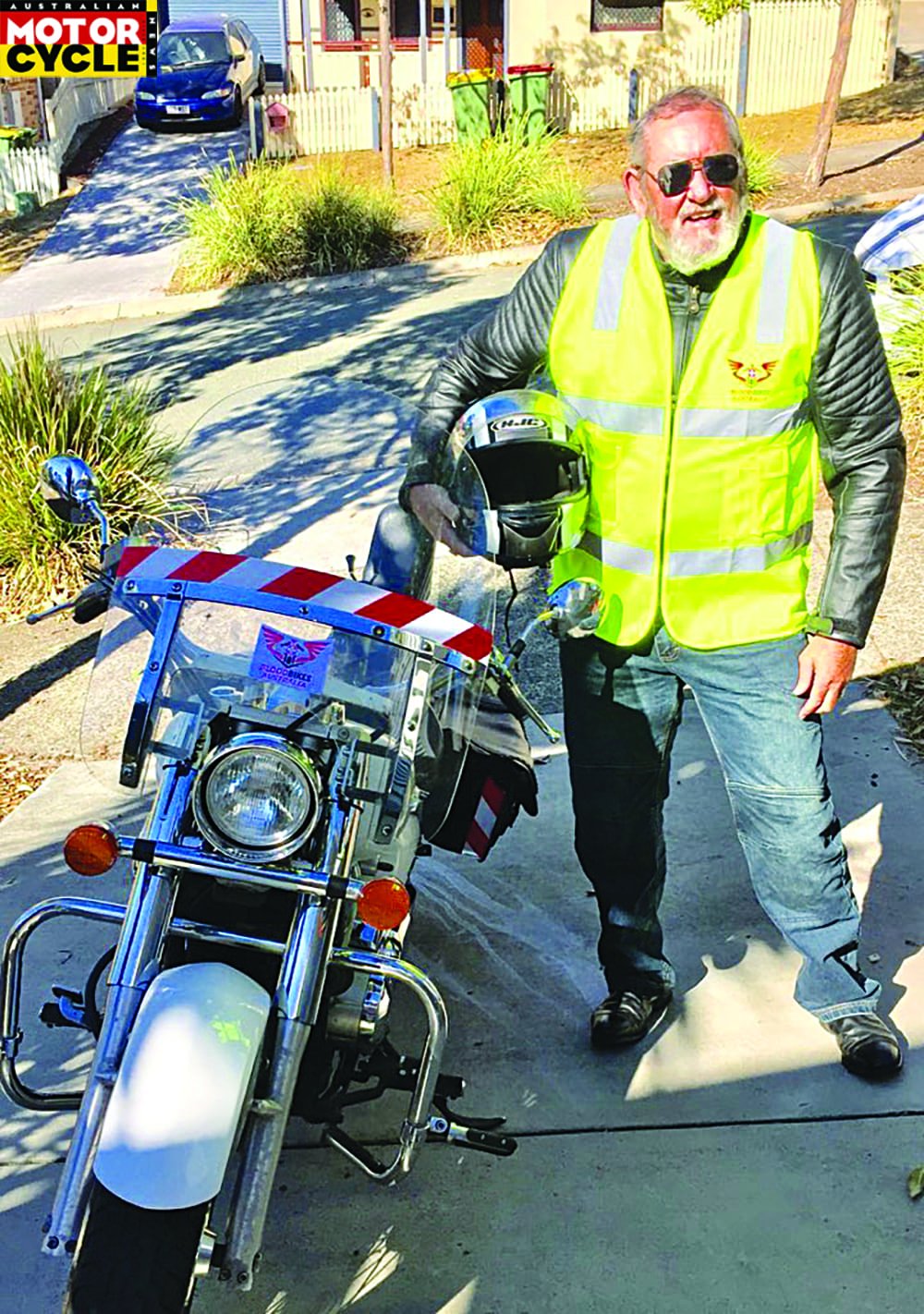
Words Sean Mooney Photography Chris Miller & SM
For your dose of the latest Motorcycle news from home and abroad subscribe to our weekly newsletter